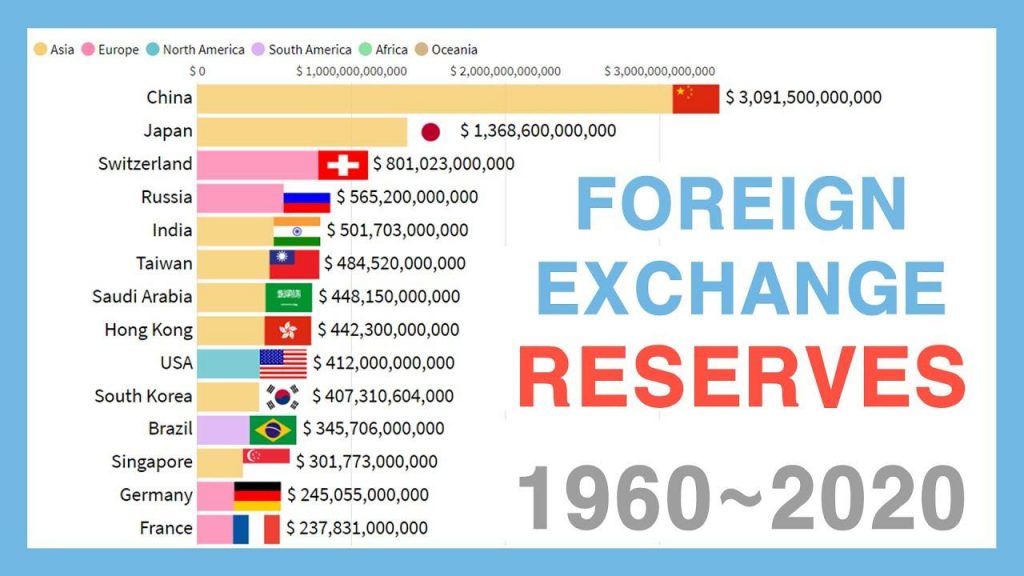Forex reserves are a country’s holdings of foreign currencies, typically held by its central bank. These reserves are used to stabilize the country’s currency, facilitate international trade, and meet external obligations. India’s forex reserves have been declining in recent months, raising concerns about the country’s economic health.

Image: forextraders.guide
Understanding Forex Reserves
Forex reserves are an important indicator of a country’s economic strength and stability. A high level of reserves provides a buffer against external shocks, such as a sudden outflow of capital or a depreciation of the currency. It also allows the central bank to intervene in the foreign exchange market to stabilize the rupee.
Reasons for Declining Forex Reserves
There are several reasons for the decline in India’s forex reserves.
- Widening Trade Deficit: India’s trade deficit has been increasing in recent months, due to rising imports and relatively slower growth in exports. This has led to a net outflow of foreign exchange.
- Capital Outflows: Foreign investors have been withdrawing their money from India due to concerns about the country’s economic outlook, rising interest rates in the United States, and a stronger dollar.
- Intervention by RBI: The Reserve Bank of India (RBI) has been intervening in the foreign exchange market to stabilize the rupee, which has led to a decline in forex reserves.
- Demand for US Dollar: The US dollar has been appreciating against most major currencies, including the rupee. This has increased the demand for US dollars, leading to a decline in forex reserves.
- Global Factors: The global economic slowdown has also contributed to the decline in forex reserves, as demand for exports has weakened.
Implications of Declining Forex Reserves
Declining forex reserves can have several implications for India’s economy. Firstly, it can put pressure on the rupee, making it more vulnerable to depreciation. Secondly, it can limit the RBI’s ability to intervene in the foreign exchange market to stabilize the rupee. Thirdly, it can reduce the country’s ability to meet external obligations, such as import payments and foreign debt repayments.

Image: news24online.com
Tips for Improving Forex Reserves
There are several steps that the government and RBI can take to improve forex reserves.
- Boost Exports: The government can take steps to boost exports by providing incentives to exporters, improving infrastructure, and negotiating favorable trade agreements.
- Reduce Imports: The government can also reduce imports by promoting domestic production and encouraging consumers to buy local products.
- Attract Foreign Investment: The government can take steps to attract foreign investment by creating a favorable investment climate, reducing red tape, and improving infrastructure.
- Increase Interest Rates: The RBI can increase interest rates to make it more attractive for foreign investors to hold rupee-denominated assets.
Why Us Forex Reserve Is Less
FAQs on Forex Reserves
Q: Why are forex reserves important?
A: Forex reserves are important because they provide a buffer against external shocks, facilitate international trade, and meet external obligations.
Q: What are the reasons for declining forex reserves?
A: The reasons for declining forex reserves include a widening trade deficit, capital outflows, intervention by the RBI, demand for the US dollar, and global factors.
Q: What are the implications of declining forex reserves?
A: Declining forex reserves can put pressure on the rupee, limit the RBI’s ability to intervene in the foreign exchange market, and reduce the country’s ability to meet external obligations.
Q: How can we improve forex reserves?
A: We can improve forex reserves by boosting exports, reducing imports, attracting foreign investment, and increasing interest rates.
Are you interested in knowing more about Forex reserves and their impact on the economy? Share your thoughts and questions in the comments section below.






